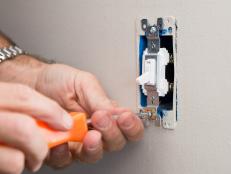Get it in Writing: A Contractor Talks About Contracts
It’s time to have a frank talk about renovation contracts: what they do, and what they don’t do.
The one thing I hear all the time is that a contract is for your protection, after the renovation goes south. If we’re talking about financial compensation for a badly finished renovation, suing at the end of a project may not give you the results you want, even with an ironclad contract. The truth is, the paper your contract is written on is only worth what you are willing and able to spend to defend that contract in court — possibly thousands of dollars. In the end, your contract could be a valuable tool in winning your legal case. Now the hard part: try collecting your judgment settlement after your contractor has closed down his company and opened again the next day under a new company name without any assets. I have a word for that — and it’s not protection.
So, then, why do need a formal contract? Because it’s the first step in determining whether your contractor is legitimate and professional, even before one nail has been hammered. Obviously, if your contractor gives you a handwritten contract on a cocktail napkin, you should kick him out on his butt. It sounds ridiculous, but homeowners show me variations of this almost every day.
Drafting a contract is the start of your relationship with a contractor. In working out the contract details, it will really show you whether this person is someone you can work with over the course of the project. If the contractor is difficult to deal with at this stage, just imagine what it will be like when he/she has your money.
Having your lawyer review a legal document before you sign it is always in your best interest. In the overall cost of a contract worth tens of thousands of dollars, spending a few hundred more to have a lawyer take a look is money well spent. An attorney will examine the fine print and advise you if he thinks important info is missing.
A contract will also give you with key information about the contractor. You can use this info to find out more about his business and potentially save yourself from a future world of pain. For one thing, a proper contractor will provide a clause showing proof of insurance. Without this, if a contractor is working on your home and, say, accidentally falls off your roof, he will be covered by his own insurance; otherwise, he'll be coming after you with a big fat lawsuit.
The other piece of information that must be on a contract is the contractor’s business number; then you can simply call the government and ask whether this is a real number. We come across bogus numbers all the time, even on professional-looking contracts, and this is a great way for homeowners to tell whether they're dealing with a real company or with a crook.
Speaking of crooks, let’s talk about the “cold, hard cash” payment scenario. Besides the obvious — that a contract is worthless if there is no proof of payment — the question I have to ask is “would you give cash to a complete stranger?” There's an entire industry based on con men poising as contractors. They request a large cash down payment in return for saving you the trouble of paying the taxes — and then they’re never seen again (big surprise there). One of my favorite sayings is “a fool and his money are soon parted,” and it was never more true than in the renovation world of under-the-table “deals.”
When I was in California, I learned that state has a construction law that limits the amount of a renovation down payment to 10 percent (to a maximum of $1,000.00). This goes a long way in stopping rip-off artists in their tracks — or at least, they have to work a lot harder to make a dishonest living.
Beyond the “cash grab and run,” you also have to consider that a contractor who is not paying taxes will also be trying to fly under the radar with all the other government services (which are there for your protection, by the way), which means he won’t work with building permits, municipal inspectors and building code safety. The key point here is that the homeowner — and not the contractor — is legally responsible for getting building permits. If the building department gets wind that you are doing a renovation without proper permits, they can force you to tear it all down. Your contractor simply disappears — bye-bye, so long, bon voyage and good luck, sucker.
The bottom line: a contractor is not a contractor without a proper contract. Make sure you have one, and make it write, I mean right.






















